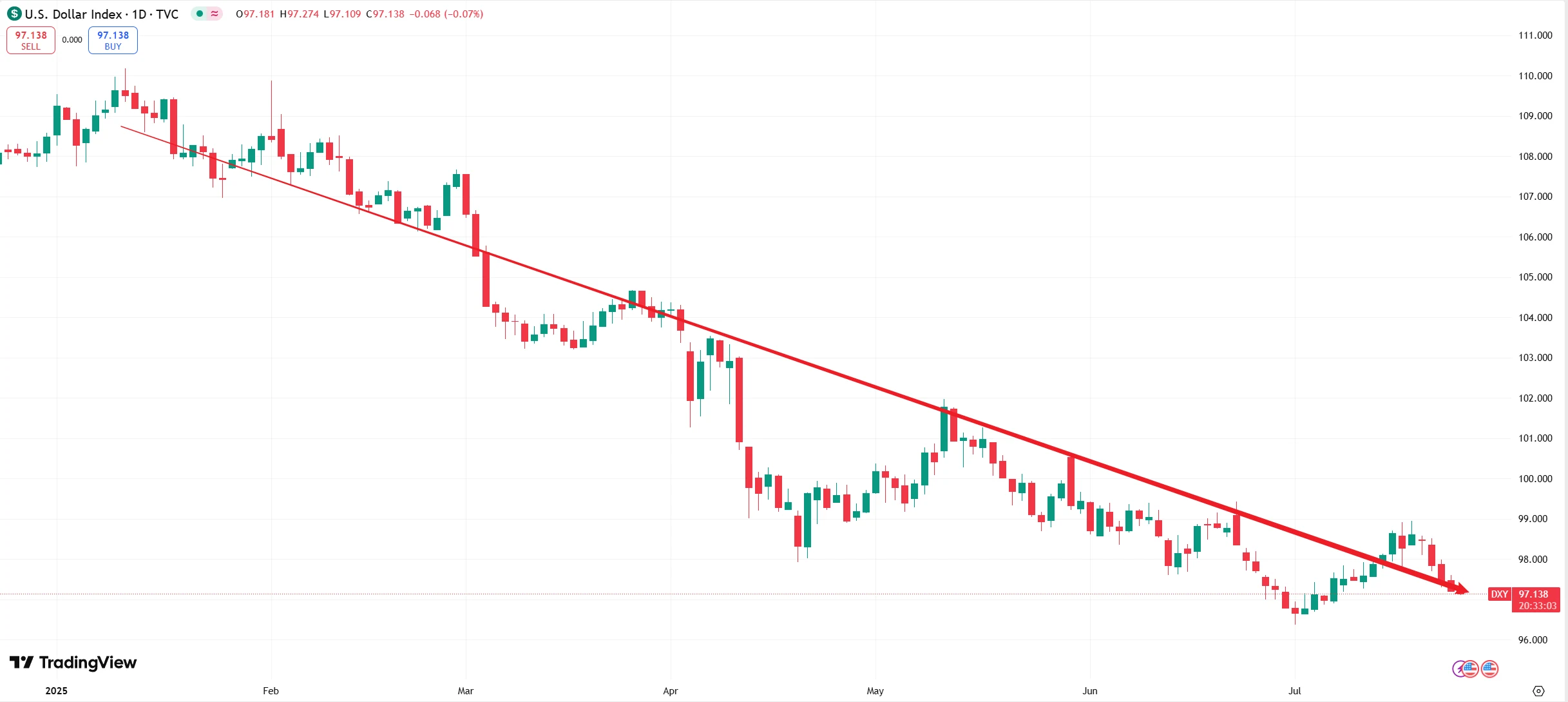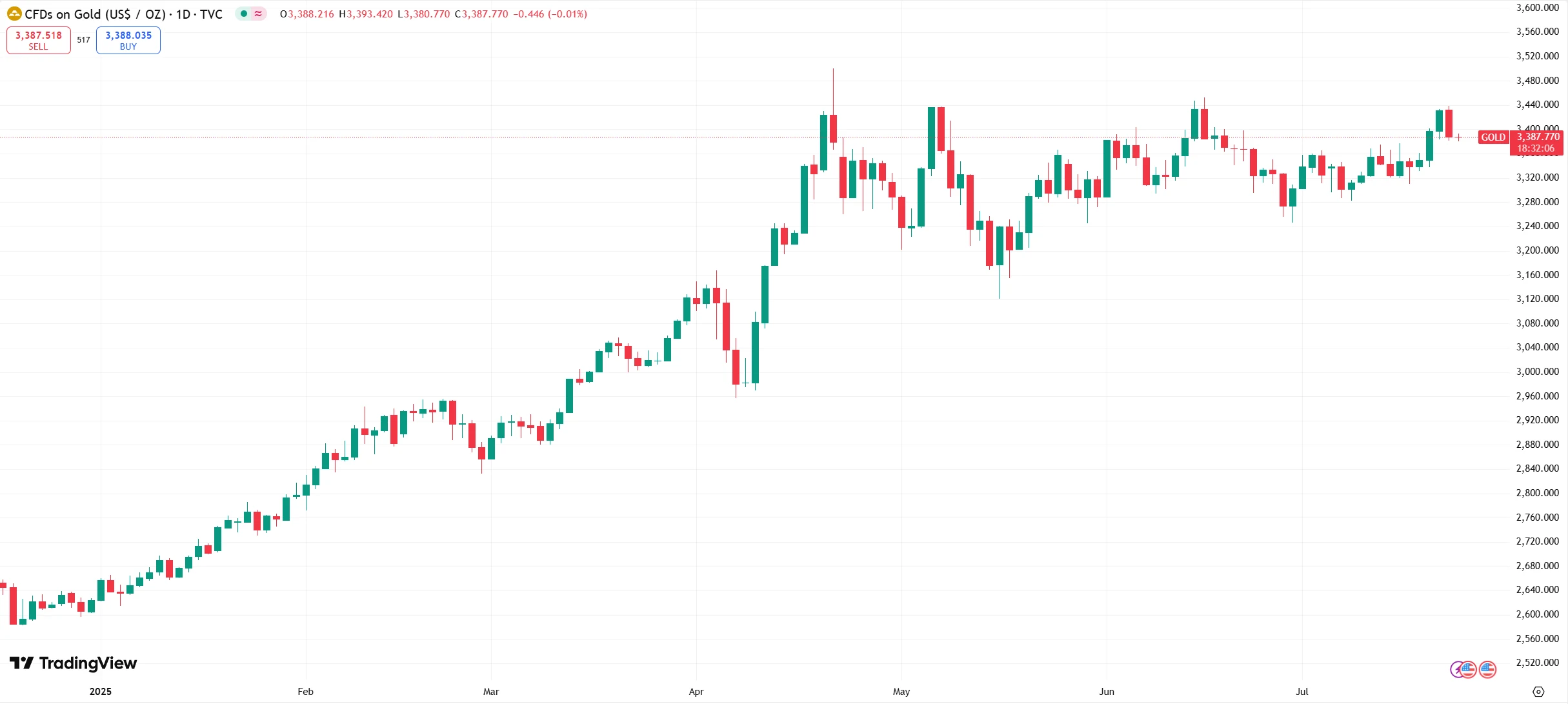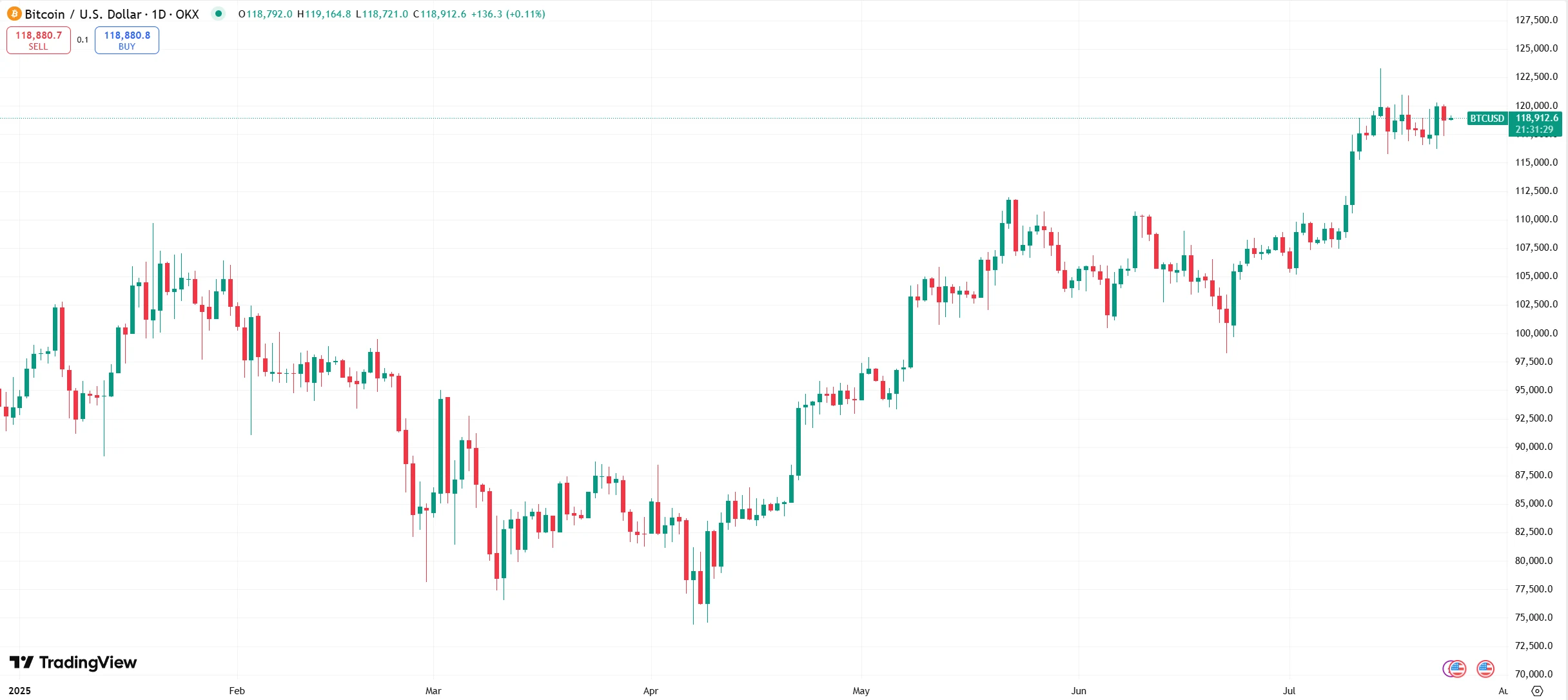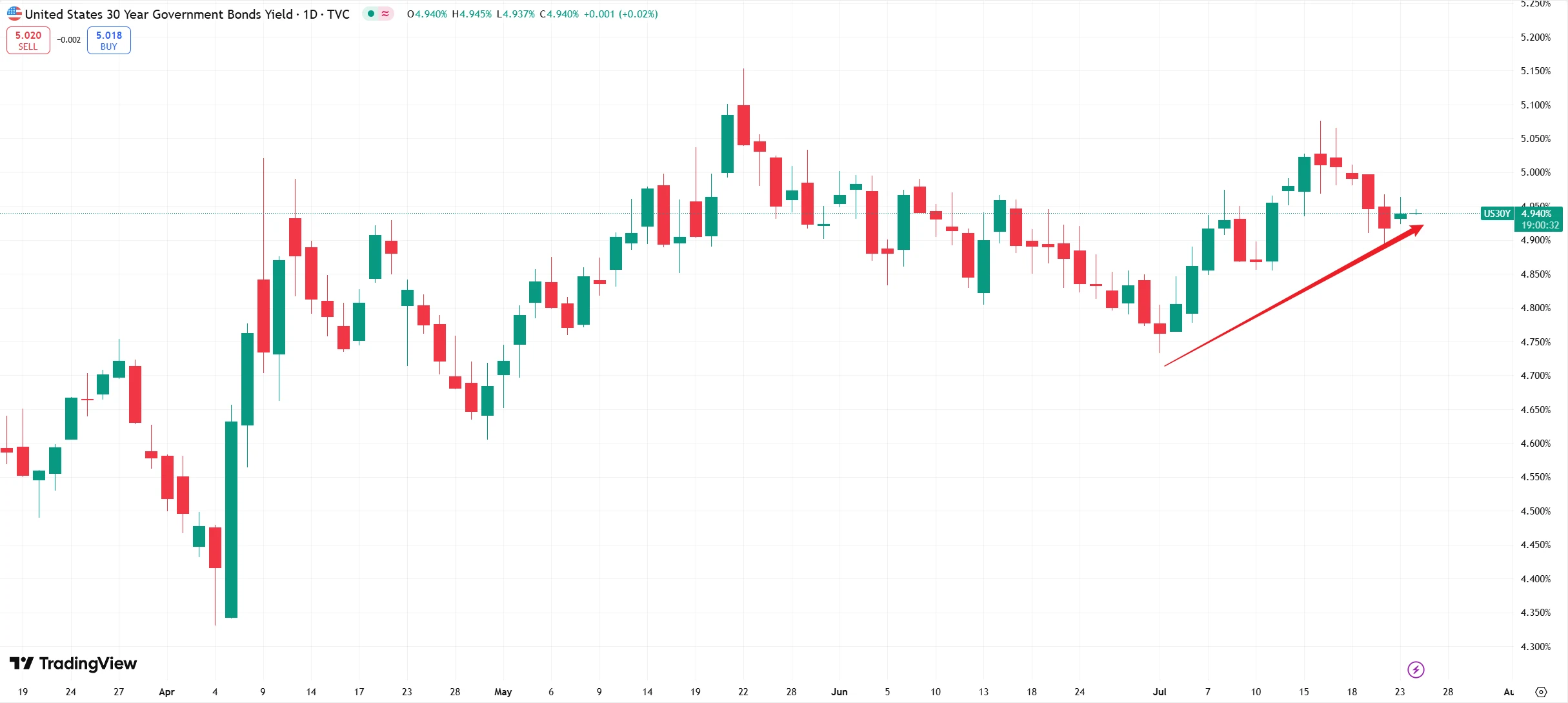Trump Targets Powell: Will the Dollar Face a Crisis?
22:41 July 23, 2025 EDT
In July 2025, a seemingly routine “renovation budget” political event is escalating into one of the most dangerous institutional tests in the U.S. in a century. Federal Reserve Chair Jerome Powell faces the risk of dismissal, with the driving force behind it being former President Donald Trump, who may return to the White House.
A Letter Sparks a Storm
The origin of the event stems from a criminal referral letter submitted to the Justice Department by Representative Anna Paulina Luna. This staunch Trump supporter accused Federal Reserve Chair Jerome Powell of perjury during congressional testimony, alleging he “concealed the true purpose and lavish extent of the Federal Reserve building’s renovation.”
The Federal Reserve headquarters is undergoing a renovation with an official budget of approximately $2.5 billion. Powell stated during hearings that the renovation was intended for “security upgrades and maintenance of aging facilities.” However, disclosed information revealed that the project includes private rooftop gardens, a VIP reception bar, custom high-end flooring, and substantial consulting fees.
The core of this accusation is not the renovation itself but its use as evidence of “deceiving Congress,” thereby seeking to establish legal grounds for dismissal.
The Federal Reserve Chair is not an official the president can arbitrarily remove. Under U.S. law, dismissal requires evidence of “unlawful conduct or malfeasance” to be legally justified. Thus, the so-called “renovation scandal” appears more like a politically motivated attempt at a legal maneuver.
Underlying Agenda
From the perspective of true motives, Trump’s intent is not about the renovation but about finding a legal avenue to remove Powell.
Over the past year, Trump has repeatedly urged the Federal Reserve to cut interest rates swiftly, only to face staunch resistance from Powell. Prioritizing inflation control, Powell has upheld the Fed’s monetary policy independence, clashing with Trump’s push for looser policy.
Should Trump return to office, he would likely seek to appoint a Federal Reserve chair more aligned with his agenda—in other words, someone more compliant in executing economic policy.
Thus, the legal scrutiny surrounding Powell is not a random event but likely a coordinated institutional offensive.
Such political interference is not unprecedented. In 1971, the Nixon administration, under dual pressures of elections and economic challenges, was frustrated by the Fed’s reluctance to lower rates. Ultimately, it pressured then-Chair Arthur Burns to relent, even announcing the end of the gold standard, triggering the “Nixon Shock.”
The consequences were soaring inflation, a decade of stagflation, and significant damage to the dollar’s credibility, serving as a textbook case of the perils of undermining monetary policy independence. Trump’s current strategy mirrors Nixon’s approach.
However, legal constraints limit the ability to remove a Fed chair. The 1935 Humphrey’s Executor v. U.S. ruling established that a president cannot dismiss independent agency heads over policy disagreements; clear evidence of wrongdoing or malfeasance is required. Powell has publicly stated he will not resign under pressure and has emphasized the Fed’s data-driven monetary policy stance, particularly in addressing inflationary pressures from Trump’s tariff policies. Thus, the “renovation scandal” is designed as a pretext for dismissal, but its legal validity remains questionable.
Potential Market Impact
If Trump succeeds in replacing Powell, the consequences would extend far beyond a personnel change, impacting global financial markets. The Federal Reserve’s independence is the cornerstone of the U.S. dollar’s status as the world’s reserve currency. Should this independence be compromised, it could trigger:
• Dollar Depreciation: A loss of confidence in the Fed’s autonomy could lead to a rapid weakening of the dollar. Deutsche Bank predicts that if Powell is removed, the dollar’s trade-weighted index could fall 3-4% within 24 hours, accompanied by a sell-off in U.S. Treasuries.

Source: TradingView
• Capital Flight: Investors may shift toward “depoliticized” assets such as gold, Swiss francs, or Bitcoin, accelerating capital outflows from U.S. markets.


Source: TradingView
• Rising Bond Yields: If the Fed is perceived as a tool of the White House, investors may demand higher risk premiums on U.S. Treasuries, pushing yields higher. This would increase borrowing costs and exacerbate the U.S. fiscal deficit.

Source: TradingView
These outcomes mirror experiences in countries like Turkey, where political interference in central banking led to currency devaluation and inflation rates as high as 35%. Economists have coined the term “Erdoganization” to describe a potential similar scenario in the U.S.
Facing potential legal risks, Trump has openly stated that, if re-elected, he would consider a “self-pardon.” Although a 1974 Justice Department opinion advised that a president cannot pardon themselves, this stance is not formal legislation and carries only advisory weight.
Should Trump pursue this action, it could trigger a cascade of constitutional confrontations, including resistance from the Attorney General, Supreme Court injunctions, and congressional impeachment proceedings, plunging the U.S. into an unprecedented institutional crisis.
Crisis for the Dollar’s Global Status
The Federal Reserve’s independence underpins the U.S. dollar’s status as the world’s reserve currency, with nearly 90% of cross-border transactions conducted in dollars. If this independence is compromised, it could lead to a weakened dollar reserve status, increased demand for alternative safe-haven assets like gold, and higher borrowing costs for the U.S. government and consumers.
Recent market trends reflect these concerns. As of July 2025, the dollar index (DXY) has fallen 10.48% year-to-date, hitting a three-year low, while gold prices have surged to record highs, signaling a shift by investors toward safe-haven assets.
If even the central bank loses its independence, can the U.S. still be trusted as a repository for global capital? This is a critical question facing financial markets today. Whether the Federal Reserve chair is replaced is far more than a personnel issue; it concerns the stability of the entire dollar-based credit system.
Current volatility in U.S. equities and bond markets is partly driven by these uncertainties. Speculation about Powell’s potential successor or a “shadow chair” could further disrupt markets, leading to confused monetary policy signals. The U.S.’s ability to maintain its financial dominance hinges on whether it can defend the Federal Reserve’s independence, a principle now facing unprecedented challenges.
Disclaimer: The content of this article does not constitute a recommendation or investment advice for any financial products.

Email Subscription
Subscribe to our email service to receive the latest updates
